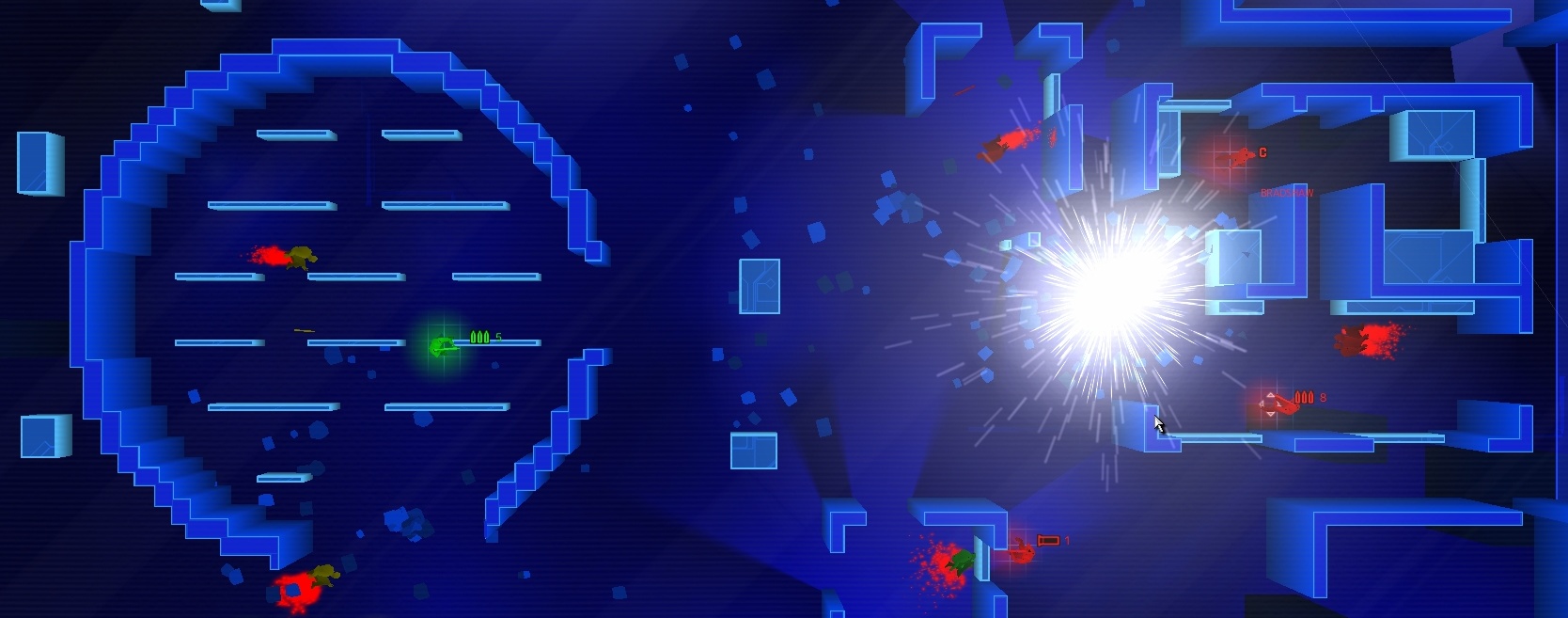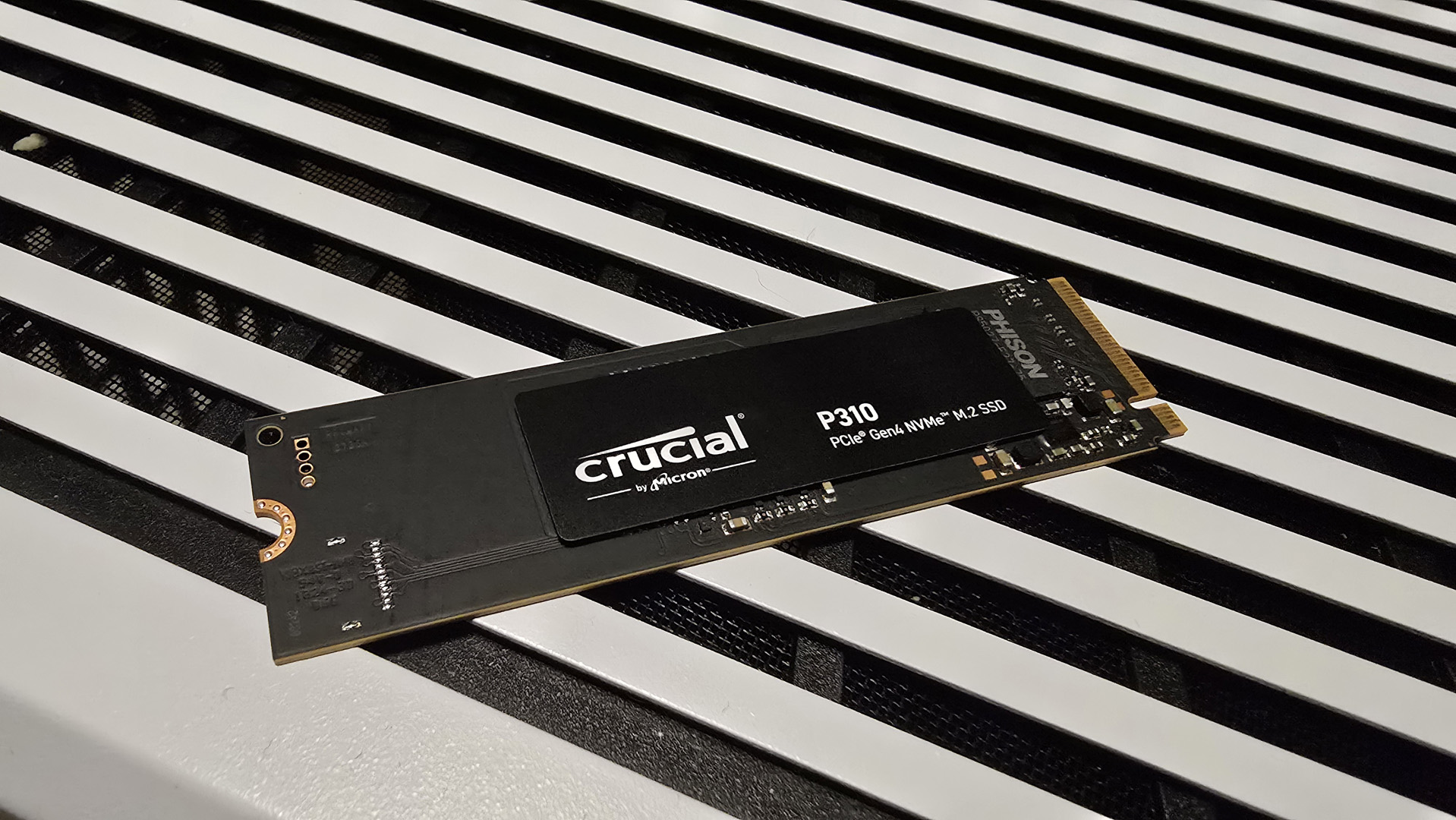Our Verdict
An elegant game of pure tactics and psychology, won by wits instead of reflexes. Good against AI, great with friends.
PC Gamer's got your back
Imagine being able to simulate the next five seconds of your life, see the consequences of your actions, then change your plan accordingly. Then imagine you've already done that three times with a review intro, and that this was the best one you could come up with.
Frozen Synapse applies that kind of near-perfect foresight to controlling small teams of gunmen in randomly generated office blocks. You set waypoints for each of your three or four guys, tell them where to look as they come around this corner, when to duck behind that cover, then you watch a simulation of what will happen if they do it. Often, bullets will happen. So you go back, tweak, and simulate again until everything goes as planned.
Then you commit.
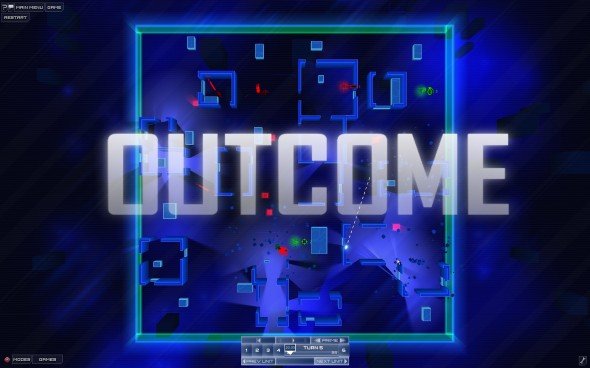
And nothing goes as you planned. Because all that time, your opponent – whether he's AI or another player – was planning too. And he didn't commit to his move until he was sure it'd screw you over. This usually leaves you both seconds from disaster. So you plan those seconds out, again and again, trying to factor-in everything your enemy could do to get an edge.
The genius of this is that it takes the guesswork out of the game rules. You never have to wonder “Will my sniper win because of the range, or will his machinegunner win because he's in cover?” You try it, find out, and restrategise accordingly.
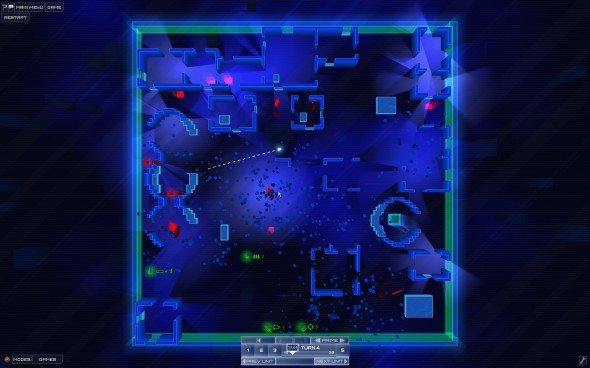
The only unknown is what your opponent will do. And you can even simulate that: as you plan your own moves, you can also give enemy units orders to see how the fight will play out if they do what you expect.
The tight, brutal battles often boil down to fraught standoffs in which no course of action guarantees survival. You find yourself thinking: “I know what the smartest thing for him to do is, and I know how to counter it. But is he actually that smart? And is he so smart he knows I know he's smart?”
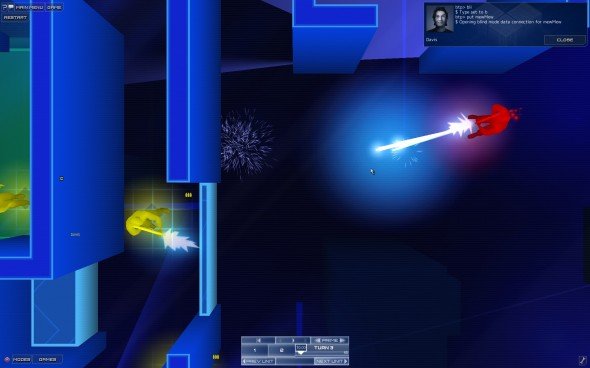
If you're worried you can't make those kinds of decisions quickly, Frozen Synapse was made for you. You have until the end of linear time. Multiplayer games often span days, and there's no negative side-effect if you and your friend aren't free at the same time. You make a plan, and if he's already made his, you see the outcome and make the next one. If he hasn't, you switch to another game – you can have loads going simultaneously, and it's surprisingly intuitive to slip back into one. You'll get an email when your friend finally makes his move.
There's also a surprisingly substantial singleplayer campaign, a fun introduction to the game until it hits an odd difficulty spike.
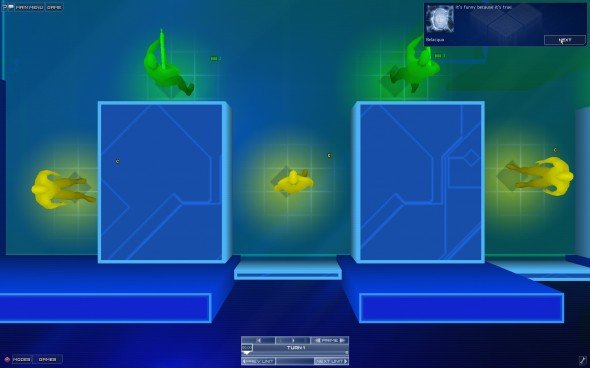
Synapse randomly generates office floorplans for its levels, and that can be problematic – particularly in multiplayer. So much comes down to positioning that asymmetrical maps sometimes feel like the primary reason you win or lose. I've won games where serious mistakes didn't undermine my starting advantage, and lost games where I still can't see what else I could have done.
Most of the time, though, Frozen Synapse comes down to wits, psychology, and thinking two moves ahead. There's an exquisite tension every time the outcome of a turn is loading. There's an evil satisfaction to watching an enemy do exactly what you predicted, and die the way you planned. And there's a surprising sense of respect for your opponent when they outplay you with something masterful. Because you're not struggling against the mechanics of the game, it's rarely frustrating and often very, very fun.
An elegant game of pure tactics and psychology, won by wits instead of reflexes. Good against AI, great with friends.
